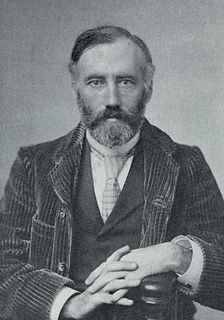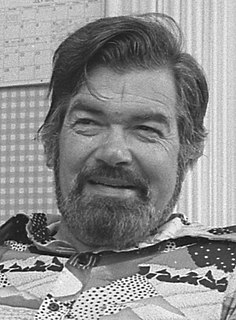A Quote by Paramahansa Yogananda
The universal law of karma ... is that of action and reaction, cause and effect, sowing and reaping. In the course of natural righteousness, man, by his thoughts and actions, becomes the arbiter of his destiny.
Related Quotes
There is good Karma, there is bad Karma, and as the wheel of life moves on, old Karma is exhausted and again fresh Karma is accumulated... Karma is twofold, hidden and manifest, Karma is the man that is, Karma is his action. True that each action is a cause from which evolves the countless ramifications of effect in time and space... To the worldy man Karma is a stern Nemesis, to the spiritual man Karma unfolds itself in harmony with his highest aspirations.
Karma is the universal law of cause and effect. You reap what you sow. You get what you earn... If you give love, you get love. Revenge returns itself upon the avenger. What goes around comes around... Karma is justice. It does not reward or punish. It shows no favoritism because we have to earn all that we receive. Karma doesn't predestine anyone or anything. We create our own causes, and karma adjusts the effects with perfect balance.
Karma is not something pessimistic. If you think of karma as something wrong, you are seeing karma only according to what happened in the past. You look at the past and karma becomes a monster. So you should also look at karma in the present and future. Then karma becomes something very wide and really alive. Through karma you can understand what your destiny is. Destiny itself has no solid form; it's something you can create. You can create your life. That is why we study karma.
His universal compassion was due less to natural instinct, than to a profound conviction, a sum of thoughts that in the course of living had filtered through to his heart: for in the nature of man, as in rock, there may be channels hollowed by the dropping of water, and these can never be destroyed.
Skepticism is unbelief in cause and effect. A man does not see, that, as he eats, so he thinks: as he deals, so he is, and so he appears; he does not see that his son is the son of his thoughts and of his actions; that fortunes are not exceptions but fruits; that relation and connection are not somewhere and sometimes, but everywhere and always; no miscellany, no exemption, no anomaly,--but method, and an even web; and what comes out, that was put in.
The recognition of the law of the cause and effect, also known as karma, is a fundamental key to understand how you've created your world, with actions of your body, speech and mind. When you truly understand karma, then you realize you are responsible for everything in your life. It is incredibly empowering to know that your future is in your hands.
The individual man, in introspecting the fact of his own consciousness, also discovers the primordial natural fact of his freedom: his freedom to choose, his freedom to use or not use his reason about any given subject. In short, the natural fact of his "free will." He also discovers the natural fact of his mind's command over his body and its actions: that is, of his natural ownership over his self.









































